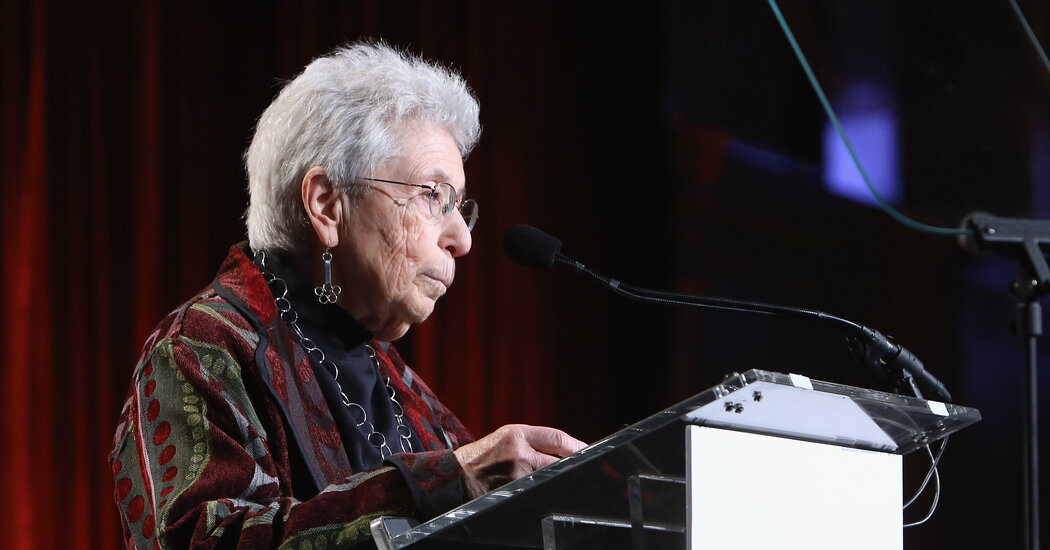She helped introduce free breakfasts and lunches for schoolchildren and open pantries and soup kitchens for the poor.
Kathy Goldman, who devoted her career as a civic leader to establishing food banks, pantries and free breakfast and lunch programs in public schools to sustain low-income New Yorkers, died on March 5 in Brooklyn. She was 92.
The cause of death, in a hospital, was congestive heart failure, her daughter, Julie Goldman, said.
Combating malnourishment, Ms. Goldman was determined to confront collective indifference, which she felt had contributed to the Holocaust. Over five decades she worked with many collaborators to successfully lobby for federal subsidies like food stamps and nutrition assistance for women, children and infants; create partnerships between local communities and corporate providers of provisions; and expand the mandate of anti-hunger programs to include help with housing, health care, education and other needs.
In 1980, she founded the Community Food Resource Center, a food pantry, as a buffer against stricter eligibility requirements for welfare. Three years later, she helped organize what is now the Food Bank for New York City, which has served scores of soup kitchens and food pantries around the city from the Hunts Point market in the Bronx. She was the center’s executive director until she retired in 2003.
In 1984, she started the Community Kitchen of West Harlem, an innovative program that not only offered food but also helped the hungry with other needs, including housing and health care. After renovations to the dining area, “when a 10-year-old boy exclaimed, ‘It’s just like McDonald’s!’ Goldman ‘considered it the greatest compliment of all time coming from a kid,’” Lana Dee Povitz wrote in “Stirrings: How Activist New Yorkers Ignited a Movement for Food Justice” (2019).
In the early 1990s, Ms. Goldman persuaded the city to open school cafeterias in Chinatown and Harlem in the evenings to serve dinners to older adults.
